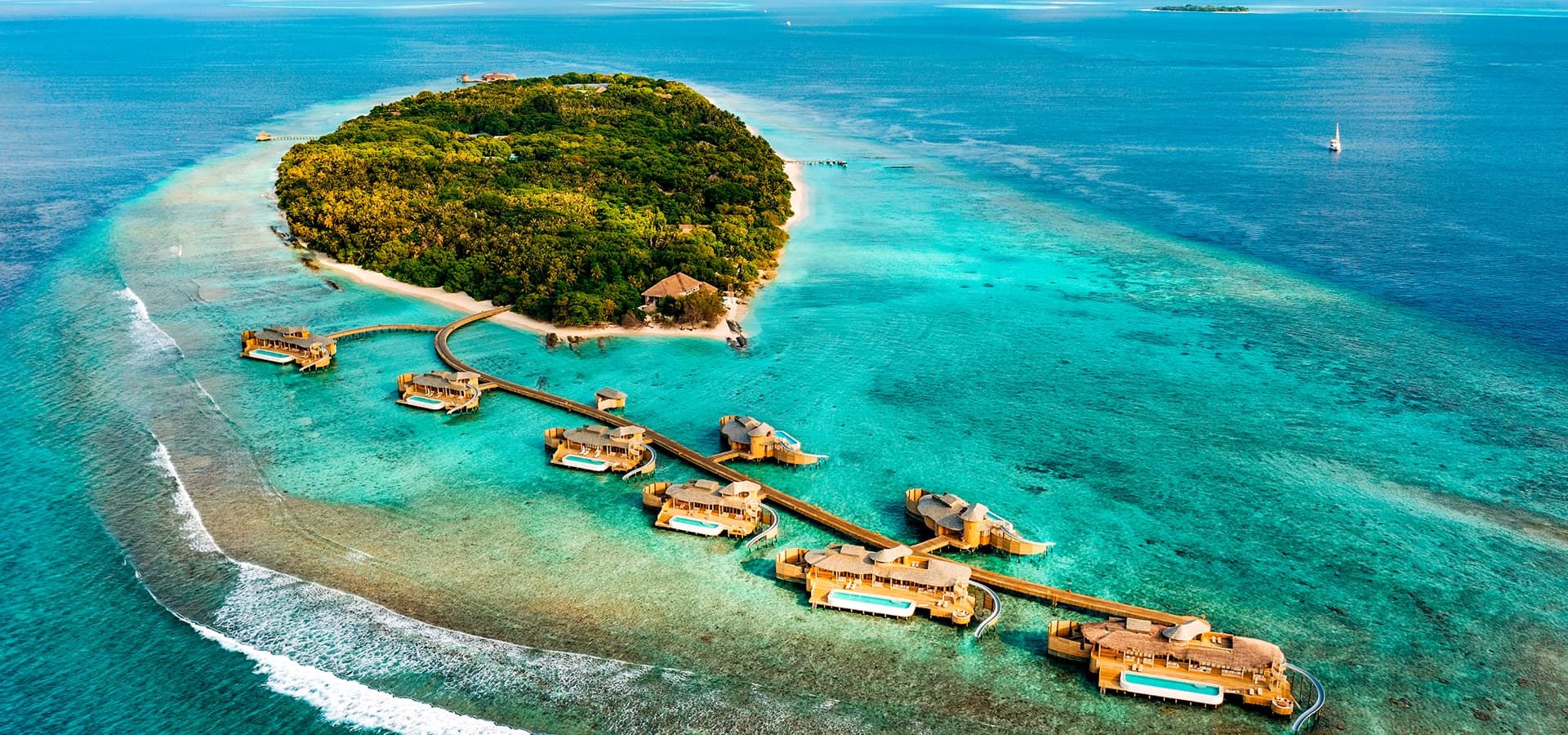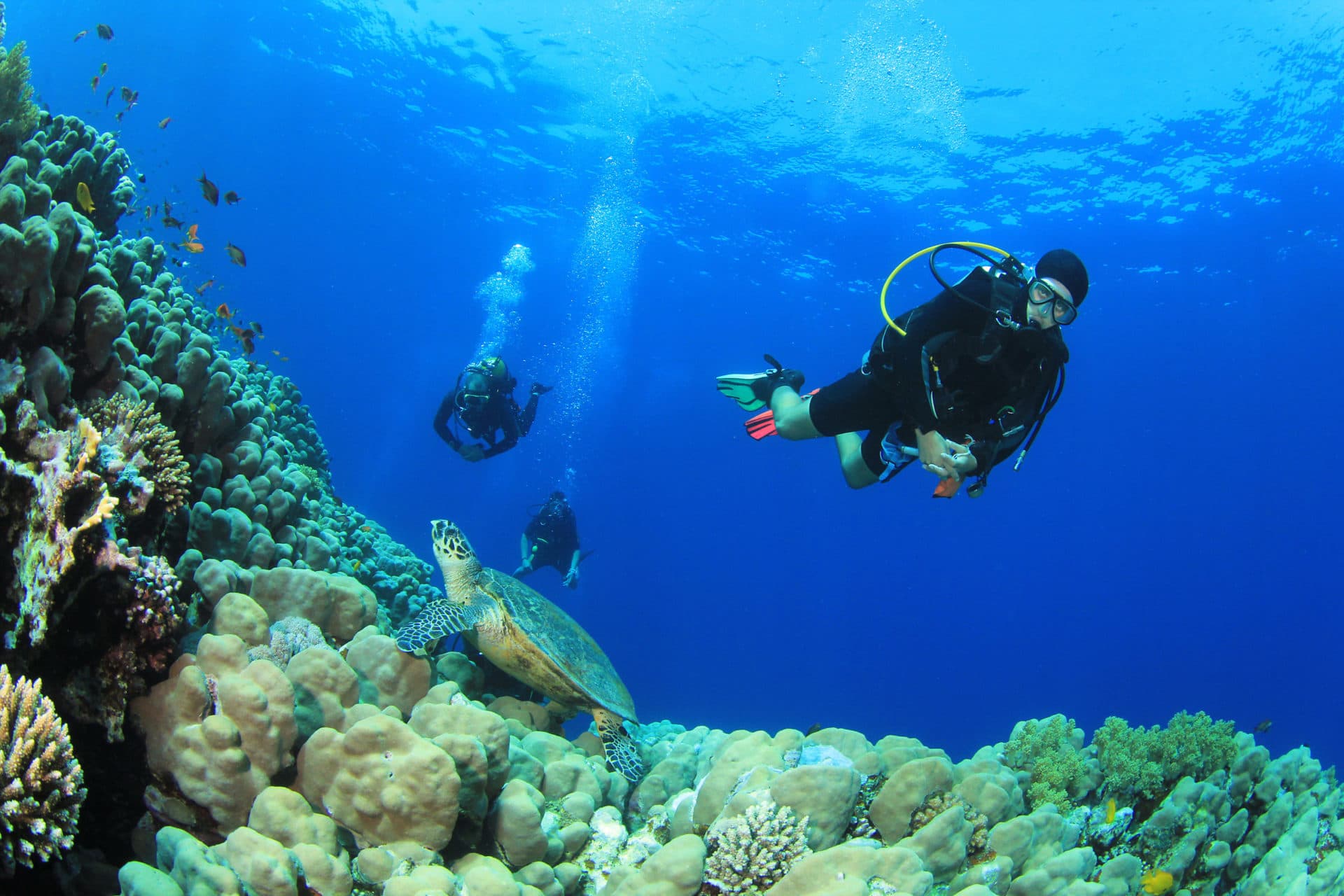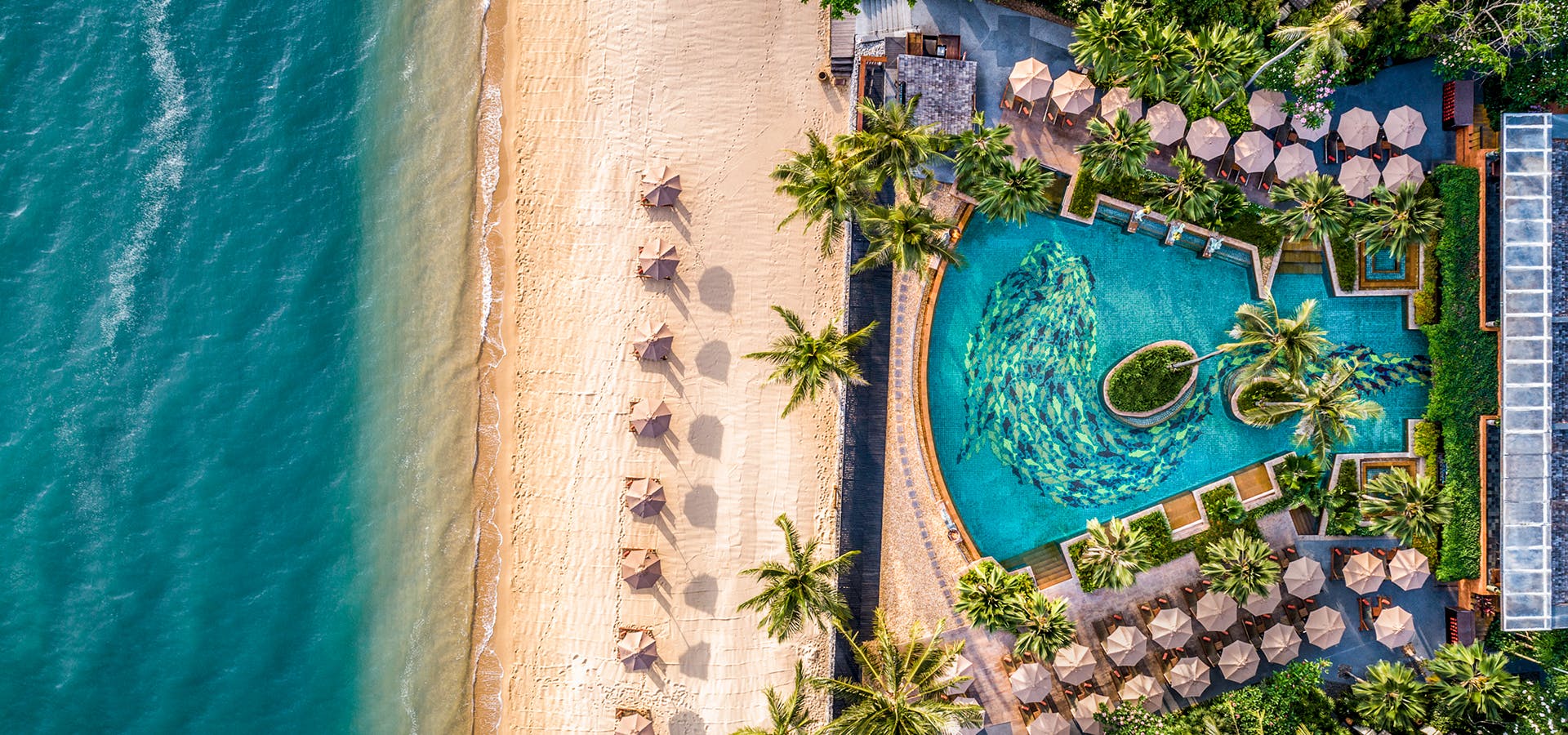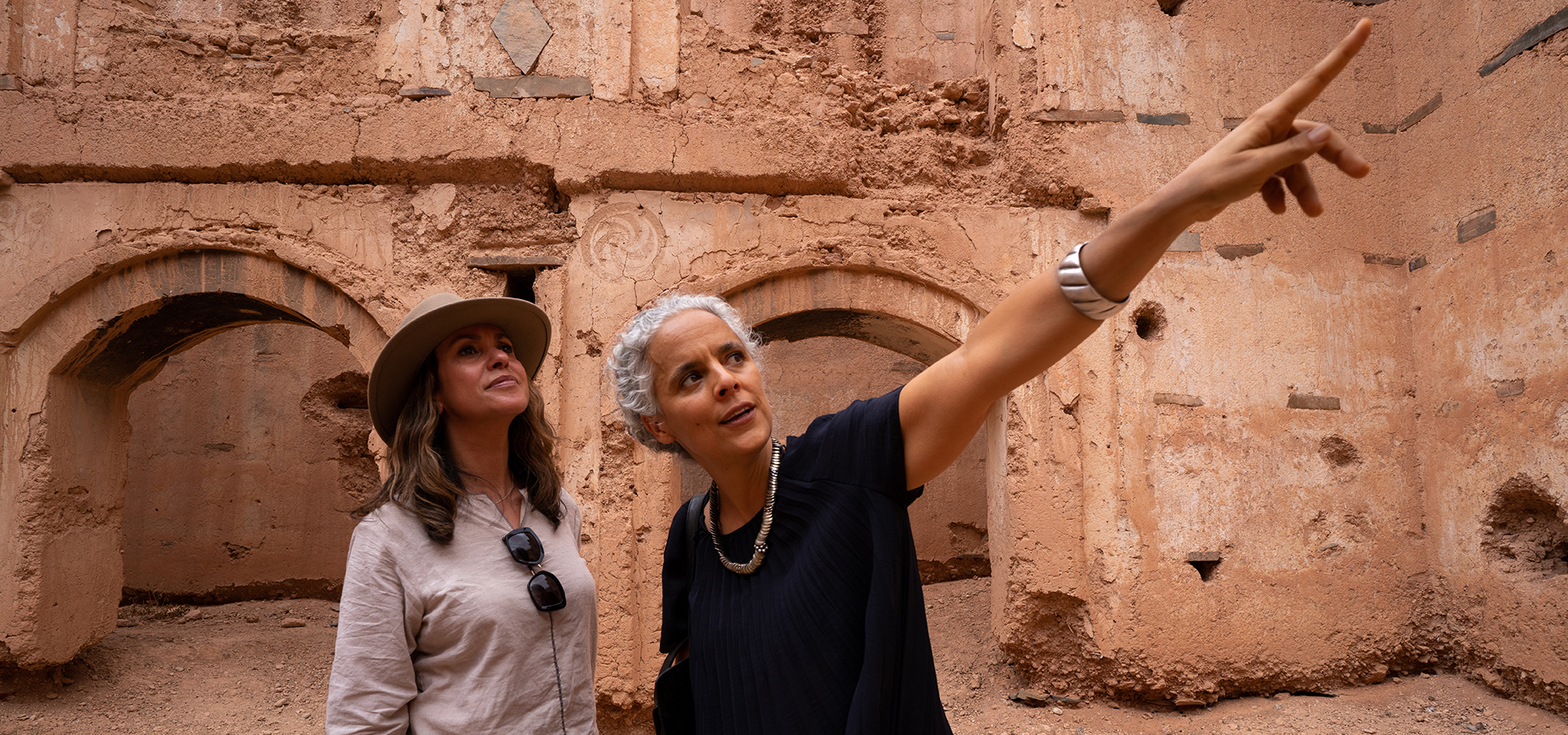Soneva Fushi, in the Maldives, is a highly sought-after remote escape in the middle of the Indian Ocean for water sports, sunbathing and gourmet feasts – yet the luxe island has another side. Long considered the original barefoot luxury resort, and a major supporter of the “slow life” where guest can reconnect with themselves and nature, it’s also a major advocate of responsible tourism.
For the latest innovation, the resort has revealed a ground-breaking new addition in the form of Makers’ Place – a fully carbon-neutral island studio that recycles waste plastic and aluminum into works of art, as well as practical objects and building materials.
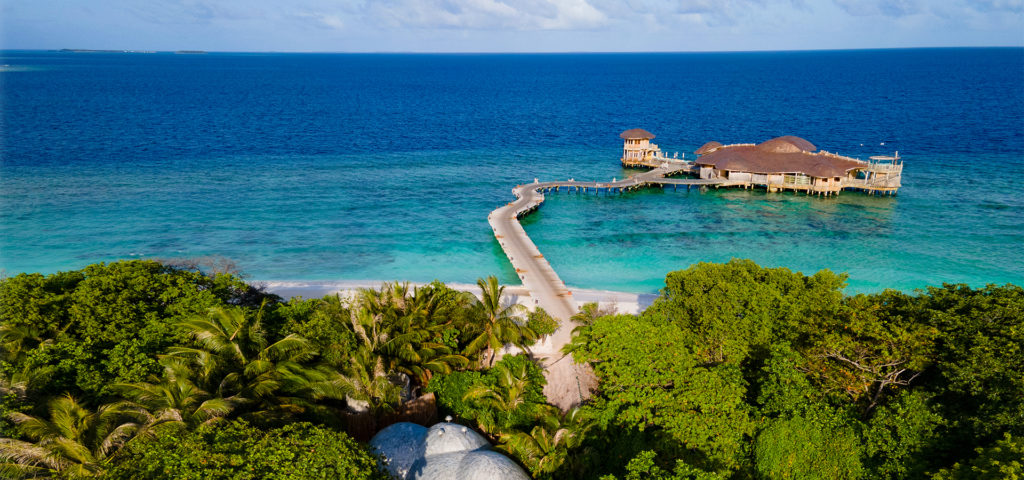
This new partnership is with world-renowned artist Alexander James Hamilton, a strong proponent for sustainability and founder of the Distil Ennui Studio™, whose practice spans sculpture, painting, photography, film, lighting and installation. At Makers’ Place studio, Hamilton uses discarded aluminum and plastics from the soft drinks Industry to created building materials, spaces and art.
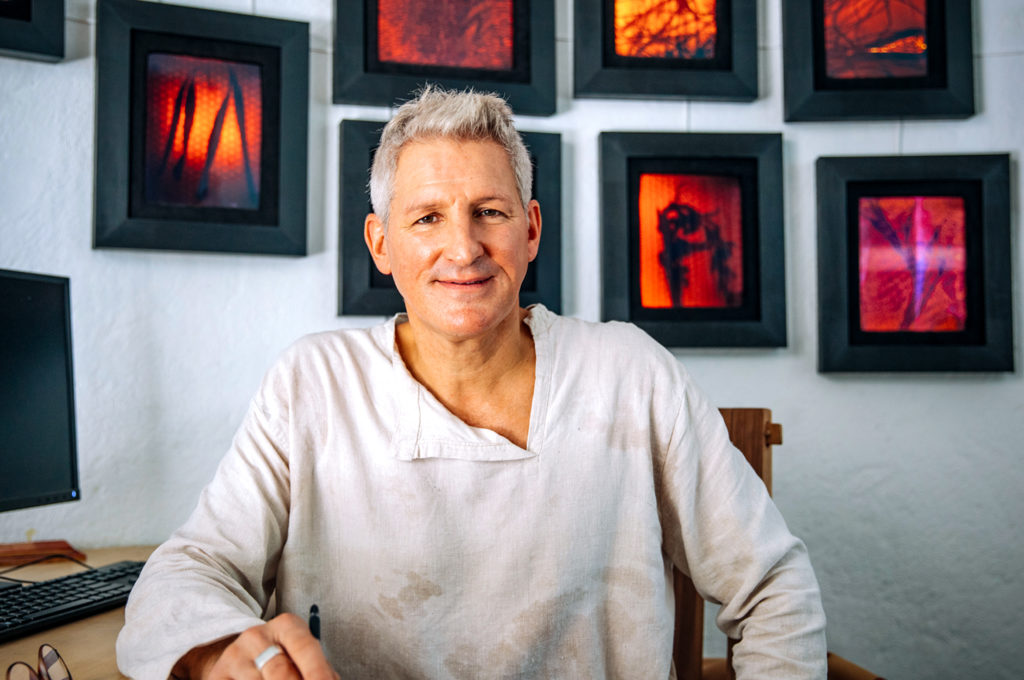
Rightfully so, some of the major soft drinks brands have been singled out as some of the world’s worst polluters. The studio aims to tackle the huge volumes of discarded plastic bottles and aluminum cans that choke the oceans, are burned in toxic fires or are dumped in landfill sites each year. Within its first three days of operation, the studio processed 15,000 old aluminum cans, thus removing them from the ecosystem.
Makers’ Place will also invite artists and guests to showcase their creativity while engaging with the community through the Soneva Namoona initiative, a collaboration between Soneva and its neighboring islands in the Baa Atoll to eliminate ocean plastics, promote better waste management and create a more sustainable future for the Maldives and beyond.
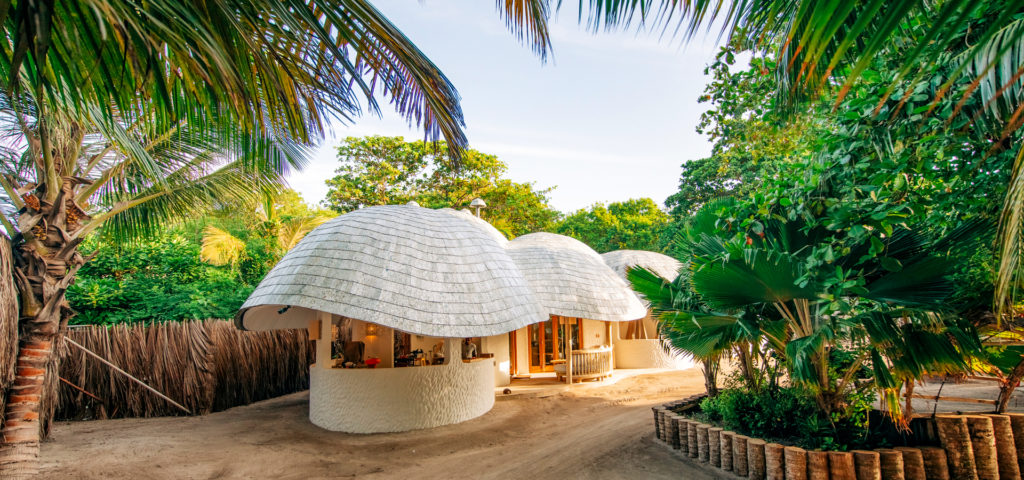
How it Works
The bespoke facility includes a closed-loop wash station to handle the final cleaning stage of the materials, which uses an innovative two-stage filtration system with granular media and coconut charcoal produced on-site, a highly effective natural filter. Unlike standard recycling facilities, which are extremely water-intensive, this efficient filtration system enables Makers’ Place to reuse its water over many months – a world’s first. The system also uses a modified exhaust system to capture harmful volatile organic compounds (VOCs) and carbon emissions when heating plastic or melting shredded aluminum, which uses activated carbon granules to ensure only clean air leaves the studio. At the end of their life, both the water and VOC filters are transformed into concrete building blocks and waterproofed, which are then used for construction.
“Every piece of single-use material that is not recycled is exponentially adding to the problem of global warming that we are all facing today,” says Hamilton. “Here in the Maldives, we are nearly 1,000 miles from the nearest landfill, and it is so sad to quantify that a large proportion of single-use packaging that is brought here has no tangible end-of-life or re-use.”
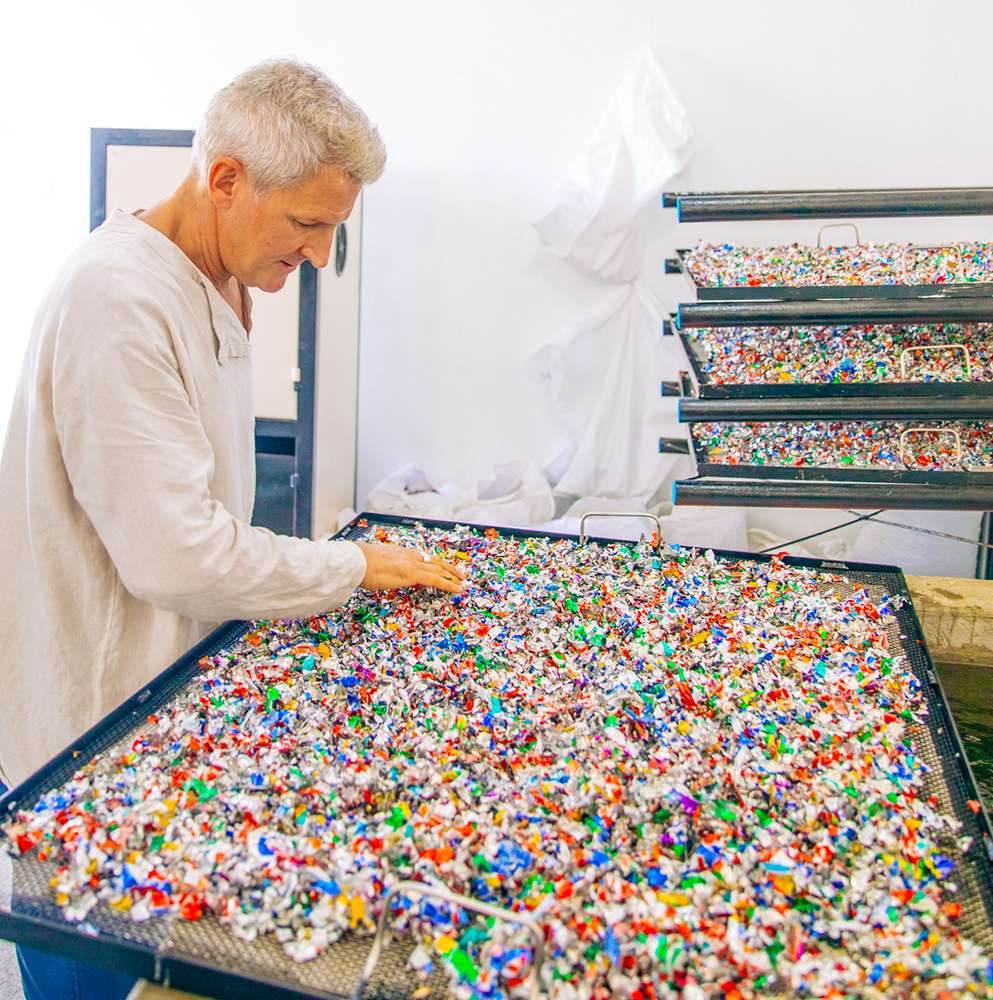
Hamilton’s Plight
Hamilton has made it his life’s work to explore and protect the world’s waters through artistic interventions. He has created explorative bodies of work around the world, using the signature of water at the core of his practice.
One can’t help but wonder why he picked this particular cluster of islands to carry out his mission. “I first visited the Maldives and created environmentally themed works back in 1988, including visiting what was soon to become Soneva Fushi some years later,” said the artist. “For me, it felt very natural and organic to bring these many differing projects together, and to continue my stewardship of the 3R Strategy with the Soneva brand as a full-circle facility. It is very important for me to have the genuine intent and ability to support and ensure that the Makers’ Place at Soneva Fushi serves a community function within the Baa Atoll and propose new directions to the wider Maldivian community.”
Generous Donations
During the development of Makers’ Place, the artist made a generous donation of 20 illuminated PhotoGrams from his Visions from the Shoreline series, which contributed towards funding the studio and the Soneva Namoona initiative. As a tribute to Hamilton, these one-of-a-kind studio proofs are now displayed around the studio that they inspired and helped to fund.
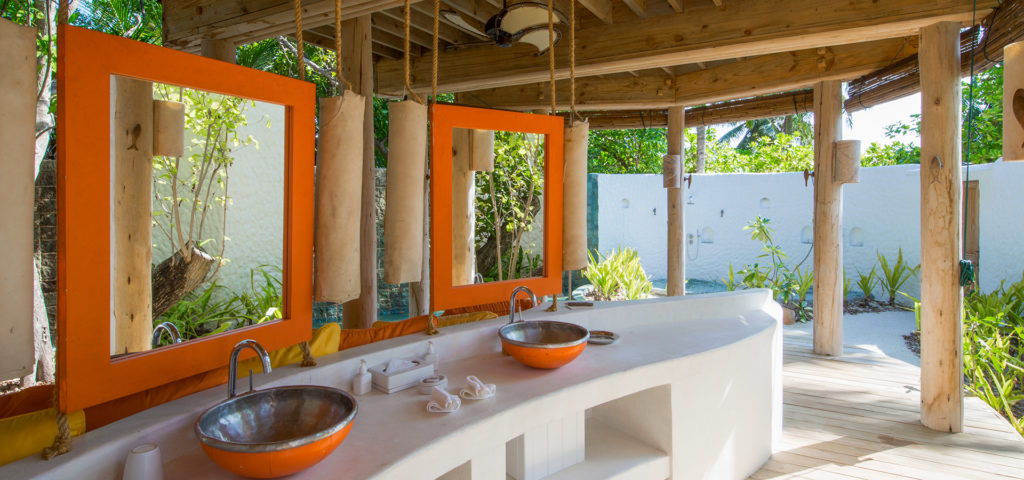
Sustainable History
As it turns out, this is not the Soneva Fushi’s first sustainable art rodeo. In 2014, they made history with the opening of Soneva Art & Glass, the Maldives’ first hot glass studio that invites renowned glass artists and guests at the resort to transform discarded bottles into works of art.
Plus, they already re-uses or recycle 90% of waste and were one of the world’s first hospitality groups to ban plastic straws back in 1998. They also produce and bottle water, and have been fully carbon neutral for both direct and indirect emissions since 2012. The resort features a Waste-to-Wealth Centre and lush organic gardens, irrigated by grey water and nurtured by compost from the resort kitchens.



